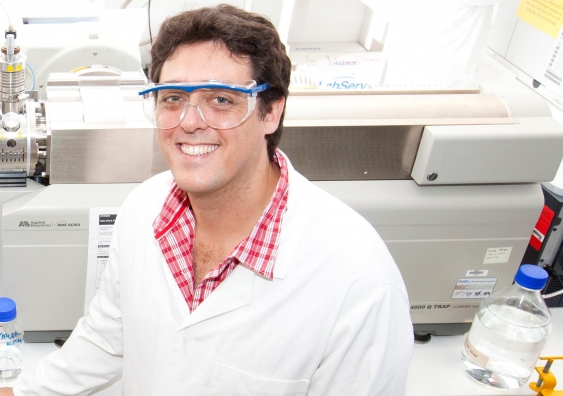UNSW researcher to advise on global water quality
UNSW environmental engineer Stuart Khan will advise on new global drinking water guidelines following his appointment to a top World Health Organisation body.
UNSW environmental engineer Stuart Khan will advise on new global drinking water guidelines following his appointment to a top World Health Organisation body.

A UNSW environmental engineer exploring the impacts of extreme weather events on water quality has been appointed to a top World Health Organisation body drafting future water strategies.
Dr Stuart Khan from the UNSW School of Civil and Environmental Engineering beat a competitive field of applicants from 56 countries to be appointed to the WHO Water Quality and Health Technical Advisory Group (WQTAG).
The group will draft the latest edition of the global drinking water guidelines, due out in 2020, and examine new directions for water quality and use including potable reuse of wastewater.
Dr Khan is a member of Australia’s equivalent national body, the Water Quality Advisory Committee to the National Health and Medical Research Council, and said the WHO appointment was a great honour.
“If I wanted to be appointed to the most important body overlooking water quality this would be the one,” he said.
Dr Khan said the current hepatitis A scare linked to frozen berries from China underscored the importance of water quality and regulation – particularly, for example, around the use of treated effluent for agricultural irrigation.
One of his major projects at present focuses on the potential impacts on water quality of extreme weather events such as floods, cyclones and bushfires, all of which are expected to increase in severity and frequency due to climate change.
Dr Khan’s research is looking at updating Australia’s drinking water guidelines with a new chapter on extraordinary measures such as extra chlorination that could be implemented by utilities in the event of a natural disaster.
Chlorination is usually tightly controlled due to the background carcinogenic risk of disinfection byproducts but Dr Khan said in circumstances such as a flood, where the turbidity of water was elevated to up to 4,000 times safe levels, extra chlorine was vital for health.
“You really have a choice, you’re either going to put up with a higher concentration of disinfection byproducts in the water or you’re going to have pathogens coming though,” he said.
Dr Khan said his appointment to the WHO group meant the research could be taken to a global level, with the potential for extreme weather guidance to be included in the updated world drinking water guidelines.
Media contact: Amy Coopes, UNSW Media Office, (02) 9385 1370, media@unsw.edu.au